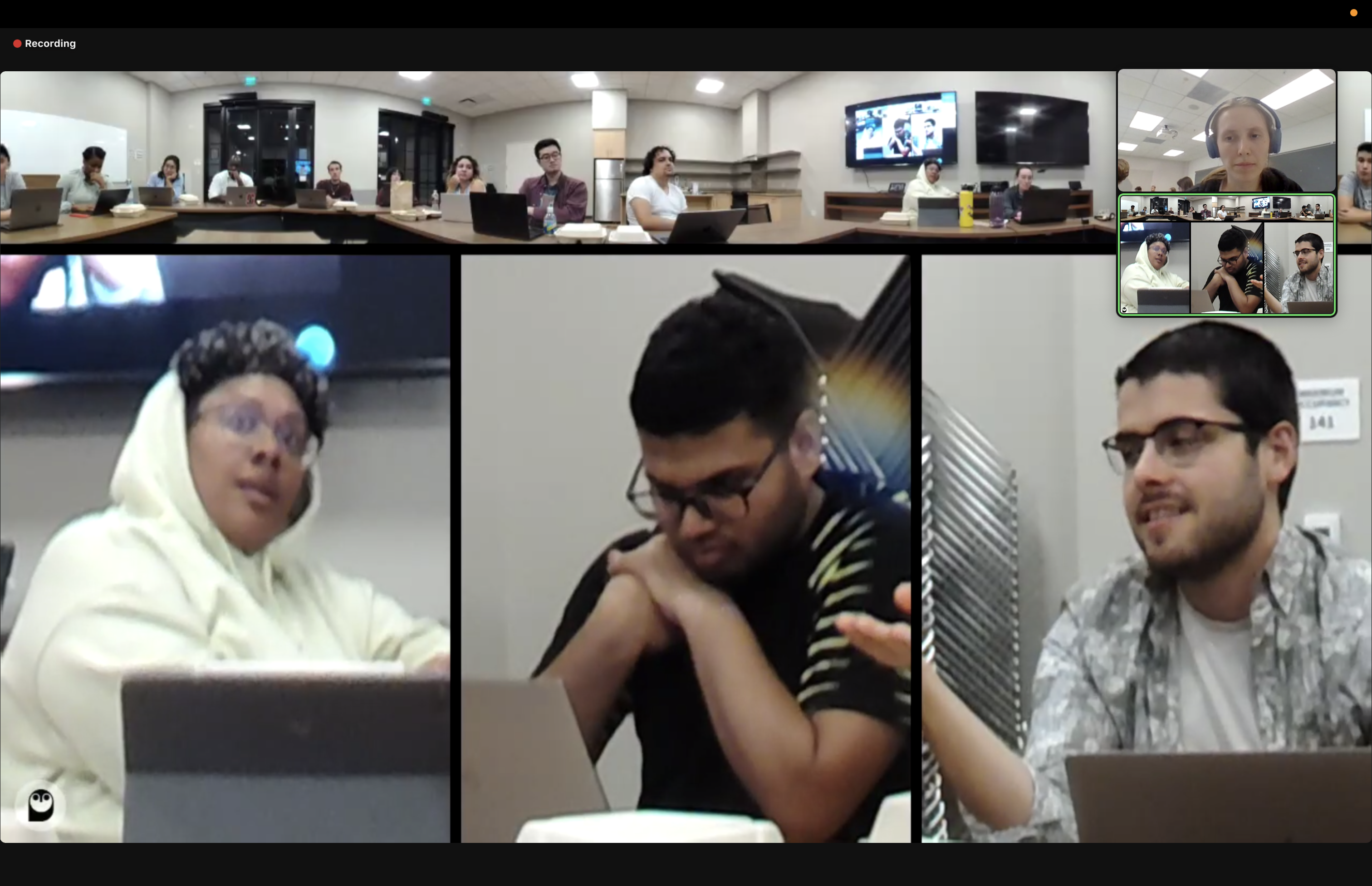The Graduate Student Council (GSC) unanimously passed two joint resolutions on affirmative action and Associate Students of Stanford University (ASSU) election reform. The GSC also introduced a letter to the presidential search committee, which listed out a series of qualities they hope to see in a new president at its Tuesday meeting.
Bill on affirmative action
The GSC unanimously voted to pass a bill in support of affirmative action in response to the Supreme Court ruling early this summer. The bill said the University should persist in its efforts to cultivate a diverse class of admitted students to the fullest extent feasible, in accordance with the SFFA v. Harvard ruling. It also recommended abolishing legacy and philanthropy preferences in the admissions process.
On June 29, the Supreme Court ruled in Students for Fair Admissions (SFFA) v. Harvard that race-conscious admission practices, otherwise known as affirmative action, could no longer be used by private institutions of higher education — overturning nearly five decades of legal precedent.
According to the joint resolution, the Supreme Court ruling is incongruous with the core Stanford value of fostering an inclusive environment. The ruling was met with criticism by students and administration alike because it undermines the institution’s dedication to fostering diversity and overlooks the valuable contributions made by diverse student bodies.
“I’m very glad to be getting the grad perspective included because this is an issue that affects all of us, so thank you so much for all of your work and all of your support,” said Undergraduate Senate co-Chair Diego Kagurabadza ’25. “Very glad to have unanimous support from the GSC.”
In order to support race-conscious admissions practices, the bill suggests that the admissions team offer an optional diversity prompt for their applicants, which gives students an opportunity to reflect on the influence their backgrounds have exerted on their personal development. It also suggests graduate departments to submit an annual diversity and inclusion report on their admission cycles to the Office of the Vice Provost for Graduate Education.
ASSU election issues
The GSC also unanimously passed another bill to address issues with ASSU elections. The bill aims to mitigate any unfair advantages that incumbent candidates may potentially have in electoral processes, in an effort to uphold principles of justice and integrity.
The resolution amended Appendix I Section 2.A of the Joint By-Laws, which currently states that ASSU resources, such as official communication channels, budgets and meetings spaces, shall not be used to express preferences for any issue or candidate in an election, unless those same resources are made to all candidates.
“When we have an election, we want to make sure that the resources provided by the student government association are used by all candidates and not only a single candidate or slate,” said Elizabeth Park, GSC co-chair and third-year Ph.D. student in chemistry. “But we also don’t want to restrict the voices of individuals working in our personal capacity.”
Presidential search
With the search for a new Stanford president still ongoing, the GSC has reached out to the Presidential Search Committee to give their input on the values and skills they believe are most important for the new president to have — a commitment to maintaining diversity, student success, engagement and accessibility; a dedication to ensuring a culture of academic responsibility, integrity and transparency; experience with donors and a strategic vision for the university; among others.
“We are an institution that has a responsibility to its students and a responsibility to be an example in the academic community,” Kristen Jackson, GSC co-chair and third-year Ph.D. student in race, inequality and language in education, said. “We must come above academic freedom. That means protecting the students above this interest of research.”
The GSC also hopes the new president will be an advocate, especially for graduate student workers. Councilors pointed to a historic lack of support from administrations and the graduate body’s subsequent decision to vote to unionize last year.
“I understand that there are a lot of things [that the president has] to do, but I think it is important for them to show that they are involved and that they care about the community. I didn’t see that in the previous president,” said GSC Financial Officer Guillemot Megias, a fourth-year Ph.D. student in aeronautics and astronautics.
“One of the shortcomings of the previous president is that, last year, when all the falsifications of the research came out, it seemed that the president was putting himself before the institution.”
The letter also states that it is especially imperative that student voices be heard in the presidential search. During the provost search, the ASSU was not consulted and the graduate student on the Provostial Search Advisory Committee had not been nominated beforehand by the GSC. Both elected bodies hope for more input in the presidential search going forward.
Benefits and Affordability Chair Emmit Pert specifically raised the Stanford administration’s decision to maintain the neighborhood system, despite its unpopularity among undergraduate students, as an example in which student opinions were ignored.
Pert said there were multiple issues where the Stanford adminstration lacked “the humility to say, ‘We should actually listen to the people affected by this.’”
“We need someone who is committed to the students,” Pert said.
